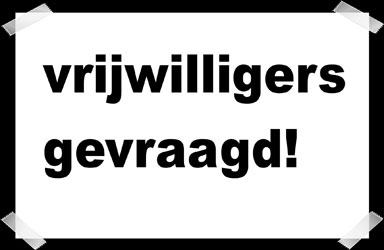Van 12 tot 15 maart 2009 vond de tweejaarlijkse IACFS/ME-Conference plaats, dit keer in Reno, Nevada. Meer info over het programma van de conferentie: klik hier.
Deze locatie werd uitgekozen omwille van het nieuwe Whittemore Peterson Neuro-Immune Institute.
Hieronder volgen twee informele verslagen. Wanneer meer en/of officiële verslaggegeving beschikbaar wordt, zal dit hier ook ter beschikking gesteld worden.
A non-scientific report on the Reno-Conference
Bron: ProHealth.com
16 maart 2009, Chris
I attended the CFS/ME conference in Reno Nevada from March 12-15. I am a patient advocate for my 35-year old daughter who is housebound with CFS. The conference took place at the Peppermill Hotel and Casino. Upon arrival, this location seemed a most improbable place to have a CFS/ME conference. This choice is a highly stimulating environment, with flashing lights, chemical smells, perfume, noise, lousy and expensive food, and a smoky environment.
The location was chosen because Reno is the home of the new Whittemore Peterson Neuro-Immune Institute, which is currently under construction at the nearby Reno branch of the University of Nevada. This research and treatment center is scheduled for completion in several years.
As with all academic conferences, there are contending forces at work. The conference organizers do their best to be inclusive of this vast umbrella of CFS/ME. Consequently the presentations run from the most abstract to the very mundane. It is a four-day extravaganza. Because of its length and breadth, the total effect is somewhat confusing and unsatisfactory in terms of getting a sense of cohesion. However one can pick their way through the talks and presentations and come away with some sense of progress and direction.
I am a patient advocate. I am neither a doctor nor a scientist. I come to this conference seeking practical information regarding treatment modalities. I find many of the research talks fascinating, but I am more interested in the here and now. My knowledge of biochemistry is limited, despite having listened to hundreds of talks.
I attended the conference in Ft. Lauderdale in 2007. The 2007 conference had a much greater sense of superficial excitement than the Reno conference. This was due to the impending Valcyte trials. Dr. Montoya, a virtual unknown at the time, was welcomed as a hero. Dr. Montoya was not at the Reno conference, and no further presentation of the Valcyte trial results have been made public.
The conference started with a one-day Patient’s conference. The talks were general in nature. The auditorium was full with close to 300 participants. Dan Peterson and Anthony Komaroff gave excellent introductory talks, followed by fine talks by Dr. Leonard Jason, who is always super focused, and by Nancy Klimas on various current treatments. There were questions for all of the speakers at the end. Very little was new here and most of the information presented can be found on the internet. The big news of course is the Whittemore-Peterson Neuro-Immune Institute.
The format from the last conference was changed in that there were not “open mike” question periods. Instead questions were put in writing and selected at the dais. While this might have proven itself to be more “efficient”, it lost the “dynamic” of the “questions portion” of the program. This written question procedures went on for the entire conference (with one notable exception). Hence the presence of Dr. Park, Dr. Shoemaker, Dr David Johnson, Rich van Konynenberg and many others was missing – in that the authors of the written questions were not identified, nor could the spectator judge the questioner through appearance and voice. (I found the open question sections incredibly valuable in the Ft. Lauderdale conference and also at various other conferences to which I have been.) I was surprised at this new format, as Klimas usually encourages the give and take. The one exception to the written questions was on the third day when there was an open discussion of several case studies. It was during this time that van Konynenburg, Park and others were able to voice their ideas to the entire group. I would very much have liked to see more of this.
A fine lunch and dinner were provided for the patients by Sierra Internal Medicine, Peterson’s organization. At dinner, Dr. Peterson was introduced – and then enthusiastically welcomed for his tremendous efforts in this field. Speaking to an appreciative audience, many of whom must have been his patients, Dr. Peterson was visibility moved – shaken really – as he thanked the patients for the inspiration that they provided him. It was a very moving and heartfelt moment, and put aside any question in my mind of the value of coming to this conference.
The next three days were the Research part of the conference. Many of the familiar CFS doctors and researchers were present: Kenny de Meirleir, Natelson, Klimas, Dan Peterson, van Konynenburg, Shoemaker, Kerr, Raymond Perrin, Trevor Marshall, Dr. John Chia, Cheney, Mikovits, and Jason. Surprisingly, many physicians and researchers were absent: Holtorf, Byron Hyde, Jacob Teitelbaum, Dale Guyer, Susan Levine, Derek Enlander, Ablashi, Montoya, Vrchota, Lerner, and Viniski. There were a few doctors from UK and Europe, and a number from Japan.
For me the highlights of the first research day (Friday) were the presentation of a small but positive trial of Isoprinosine (showing patient improvement in various parameters), an exquisite talk by Alan R. Light on receptor expression on Leukocytes increases after moderate exercise (with potential biomarker possibilities), and a small trial on Xyrem (taken for alpha wave intrusion). 95% of patients showed improvements, with no difference in immune markers. Next was the soft-spoken Jonathan Kerr, who holds a key for long-term solutions, and whose presentations are riveting.
The second research conference day, Saturday, was the longest and included the most presentations. Saturday started with the open discussion on “difficult patients’. This was quite interesting, but it could have been much longer. Mikovits, the director of the Whittemore-Peterson gave a slam-bang talk, one similar to what she delivered in the UK last May. However, this time she had less time and she really had to whirl through it. This gal is generally accepted as being a serious researcher and in a position to get some results. She is obviously bringing money and people over from her former research field in cancer. Gordon Broderick, allied with Klimas, gave a super lecture on his new paradigm or motif for gathering and collating information, which presents a much broader and dynamic model. Vincent Lombardi, also with the Whittemore-Peterson Institute, concluded that cytokine and chemokine signatures in subgroups of ME/CFS could be used diagnostically, as serum biomarkers to striate patients for appropriate anti-inflammatory, antimicrobial and antiviral therapeutics. Klimas followed this with her talk on cytokine defects in CFS/ME. I was pleased to see Norman Booth give his study results on mitochondria dysfunction and the mitochondrial tests that are being done at Acumen in the UK. Acumen is run by John McClaren Howard. Also Shoemaker gave a great talk, but he seems to get lost in the shuffle. I actually was surprised that he was invited to give a talk.
The third day featured research in genomics. This session presented, through Kerr (and two of his very young lab scientists, who both made excellent presentations) and Mitovics, an impressive coherence. At the same time there seemed to be a sense that not everyone was on the same page, and that there were many loose ends. There was an agreement that much work needs to be done before biomarkers might be realized or treatment modalities attempted.
At the end the Japanese scientists presented their “model for an integrative approach” including ideas about anti-fatigue foods.
Poster papers are presented in an adjacent room to the lecture hall. Poster papers are visual presentations on bulletin boards and available for viewing throughout the three day Research conference. They are pre-selected, through an application process. I estimate that there were about 30 poster paper presentations. These included work of Dr. John Chia on Oxymatrin, and Rich van Konynenburg’s positive results on his Methylation pathway blockage concept. Additionally Ritchie Shoemaker, Trevor Howard, Raymond Perrin, Amy Proal and Ashok Gupta presented their ideas. The presenters of the posters were available during the breaks for conversation – and there was a great deal of interaction that took place in this room.
A DVD of the complete conference is available and will be released in two weeks.
Chris
Informal summary of 2009 IACFS/ME Conference
Bron: ME-NET Archives
13-16 maart 2009, Kim McCleary, Voorzitter CFIDS Association of America
Bron: Facebook
Day One at the IACFS/ME Conference- Friday, March 13, 2009 at 12:33am
It’s been a long day, especially straddling the time difference between Eastern and Pacific time. Today’s agenda was the “Patient Conference,” intended to provide an overview of the current state of research and treatment of CFS. Current and former IACFS/ME Board members were the speakers and sessions ranged from broad to quite specific. At the end of the day, all the speakers returned to the podium to address questions that members of the 220-person audience had submitted on note cards. A documentary now in production, “Invisible,” was shown and a patient reception and dinner followed.
Suzanne and I wished to return the warm hospitality shown to us last spring by the CFS research group in Japan, so we hosted a small dinner in honor of the five members of the group who travelled across the ocean to participate in the meeting. It was an enjoyable evening and a good way to catch up with colleagues who had travelled so far to attend.
I hope you’ll look at the photo album we’ve assembled and take note of the captions to put faces to names you might recognize.
Although today’s presentations were not peer-reviewed, and therefore the content didn’t have to pass “muster” with any authoritative group, I thought you might like to read a few tidbits shared by those who took the podium today (Thursday). I present them here in no particular order, from my notes.
I tend to think in “threes” so you’ll notice that grouping:
Common themes:
- Subgrouping patients by symptom clusters and positive findings (infection, autonomic problems, etc.) is the way forward for CFS and will help to make treatment more effective
- Evidence pointing to problems with energy metabolism is “hot” again
- Infections with viruses and other agents (like Lyme) are important, but the science is still not “mature”; tissue culture tests are more meaningful than antibody tests, but are harder to get done well Energy conservation:
- Learning how to find your “energy envelope” is one of the most important coping strategies you can employ in living better with CFS
- Although it’s tough to do, resetting expectations for what activities you can manage is an important aspect of healing
- Finding low-energy enjoyable activities can contribute to an improved sense of well-being
Treatment:
- Try very, very low doses of the drugs recently approved for fibromyalgia pain (Cymbalta, Lyrica and Savella); most CFS patients can’t tolerate the doses used for patients with FM only
- High dose vitamin C (4000 mg per day) and CoQ10 (100 mg per day) can be helpful for relieving fatigue and brain fog
- Almost every patient will find some benefit to regular massage therapy — if you can afford it!
Research:
- There are lots of opportunities for patients to participate in research. Check http://www.clinicaltrials.gov.
- Many of the imaging techniques being used in CFS studies right now (MRI, SPECT, MRS, fMRI, PET, CT) are still only useful in research and individual patients should not seek a certain doctor just because they can order these studies – it’s still too early to know what they mean for you
- Genomics, microarray studies, Genome Wide Association Studies and newer imaging techinques all hold tremendous promise in uncovering more useful information for the diagnosis and treatment of CFS
Real world advice:
- “You are still the same wonderful person you used to be before you got sick!” — Dr. Gudrun Lange
- “Every person in this room can get better” — Dr. Nancy Klimas
- “Don’t drive in rush hour traffic!” — Dr. Gudrun Lange
Day Two of the IACFS/ME Conference- Sat 1:05am
Reporting in from Day Two of the IACFS/ME conference, the hour is late and the day was long (again, imagine that!). Today (Friday) was the first of three days of the research/clinical conference. The goal of the sessions conducted today through Sunday is to present the latest data on research being conducted in CFS. About 180 people registered for the meeting and for most of the day, the large ballroom was full. Many patients stayed over from yesterday’s patient conference, determined to push through exhaustion and brain fog to hear the latest data from the researchers themselves. Some stayed just to soak in a sense of progress and camaraderie.
In addition to research groups from across the U.S., today research was presented from investigators in Barcelona, Spain; London, England, Recife, Brazil; Sydney Australia; Oslo, Norway; Bergen, Norway; Osaka, Japan; Auckland, New Zealand; and Brussels, Belgium. CFS is truly a worldwide public
health concern.
The morning session began with an elegant overview from Dr. Yasuyoshi Watanabe of his team’s research in Japan. The presentations that followed, on the broad topic of pharmacologic and non-pharmacologic treatment advances, generally agreed that cognitive behavioral therapy was not a cure-all, but could provide some relief if the patient and practitioner had similar goals and expectations. There was some initially promising data offered on isoprinosine, although it’s not available in the U.S., but can be ordered from Canada or Europe with a prescription. EMDR performed by a licensed practitioner also provided some benefit. Xyrem (sodium oxibate) was shown in one trial to be effective in reducing alpha-wave intrusion during sleep and restoring restful sleep.
Epidemiology studies followed the lunch break. Infections with Q-fever (coxiella burnetti), giardia and parvovirus B19 were shown to lead to persistent CFS-like symptoms in a subset of patients. Repetitive stress injury was shown to correlate with CFS symptoms in a group of bank workers in Brazil. Death rates among CFS patients were the same as the rest of the patients in one doctor’s New Zealand medical practice – good news, I suppose.
In the short session on neuroendocrine advances, two investigators funded by the CFIDS Association presented data. Dr. Alan Light’s presentation on a set of adrenegeric and sensory receptors following mild exercise brought a collective ‘Ahhhhh’ from the room when he showed charts clearly distinguishing CFS from matched healthy controls and MS patients. Dr. Klimas’s group at University of Miami showed some data that neuropeptide Y correlates with symptom severity.
The program ended today with an address from John Kitzhaber, M.D., the former governor of Oregon. Dr. Kitzhaber presented his ideas for a transformational overhaul of the entire health care system, incorporating humor and a heavy dose of reality into his talk. His ideas and his delivery were met with a standing ovation from attendees.
This evening Suzanne and I were invited guests to attend a reception at the Nevada Museum of Art hosted by Annette and Harvey Whittemore in support of the IACFS/ME. We enjoyed having time to converse with researchers and advocates alike, although neither of us took the opportunity to see the
museum exhibits that were open to guests. Several administration and faculty of the University of Nevada-Reno and the Whittemore Peterson Institute were there in support of expanding CFS research.
After the reception, Suzanne had some research-related conversations while I took time to visit with several of the people who worked on the local patient task force to make the conference a success. I enjoyed renewing old friendships and meeting new people, all part of this vibrant, courageous and persistent community.
Suzanne has made a 7 a.m. meeting for us and the program starts at 8 a.m., so I will close here. More news to follow from the Saturday session!
Day Three from the Conference- Sat 4:34pm
Friends and coworkers are expressing concern (dismay?) about the hours at which I’ve been posting updates, so I’ll make a quick report this afternoon
The format today followed the same schedule as yesterday’s session: 11-minute data presentations grouped by broad topic were followed by a Q&A wrap-up of those speakers, each of whom was asked to respond to two or three questions submitted from the audience on notecards. While this helps move the agenda along and spreads questions more evenly among the speakers, we’ve found something missing in the ability for questioner and answerer to offer clarifying points and provide more challenge to the data being presented.
It’s also not possible to know what questions asked were not answered, as the speaker can choose among more questions than he or she will have time answer.
Breaks occur roughly every two hours, but there is little time between sessions to do more than attend to bodily needs. Like most casino venues, there’s no way to tell from inside the hotel whether it’s light out or dark, sunny or raining. In fact, by day three Suzanne and I both feel like we’re suffering from Induced Seasonal Affective Disorder. I can’t imagine how the CFS patients attending are holding up. The room is noticeably less well populated today, particularly this afternoon.
Enough with setting the scene! Today’s sessions so far have covered: Difficult Clinical Cases Discussed; Immunology; Assessment Issues from Biological to Behavioral; and the current session on Pediatric ME/CFS.
Speakers have hailed from several cities across the U.S. and the following international locations: Stockholm, Sweden; Brussels, Belgium; Riga, Latvia; Queensland, Australia; Edmonton, Alberta; Woodville, Australia; Oxford, England; Edegem, Brussels; Bristol, England; and Osaka City, Japan.
There has been repeated discussion of the apparent inability of CFS patients to appropriately produce energy at the cellular level. This issue has popped up from time-to-time in the past, but it seems to be particularly ‘hot’ at this meeting. Like the meeting two years ago in Ft. Lauderdale, the role of viruses and other infectious agents has been a frequent topic, with studies of various herpesviruses (Epstein-Barr virus, HHV-6A, HHV-6B, and HHV-7) and parvovirus B19 specifically. The range of findings still suggests that the ability of the human host to respond to infection may be more relevant than the type of infection, but the answer likely lies somewhere in the interface between the two. Related to this, the difficulty of obtaining reliable tests to measure for active versus latent virus limits clinical utility and the ability to develop appropriate treatment strategies. There were no new studies presented about the use of Valcyte (valganciclovir) to treat active HHV-6 and EBV infection, as many onsite here had hoped. During the first morning session on tough cases, the expert clinicians agreed that it is still too soon to tell whether Valcyte will turn out to be ‘worth’ the $2,800/month that most patients would have to pay out-of-pocket for the drug.
Three investigators funded by the CFIDS Association of America presented studies today. Christopher Snell and Mark VanNess from University of Pacific provided data from a study of post-exertional relapse using a test-retest exercise challenge. Dr. Snell reported that a test of immune function, RNaseL, shown in earlier studies by Robert Suhadonik and others to be abnormal, was not useful in distinguishing between CFS subjects and normal controls. Dr. VanNess reported that only a subset of CFS patients was able to reproduce performance during exercise challenge when tested at baseline and 24 hours later. This was somewhat disappointing, because pilot studies of a few patients had shown all CFS subjects to have dramatically different performance on the first day when compared to test results a day after the initial test. This test may still be useful in establishing vocational disability, but it’s lucky that it hasn’t been made a requirement as some suggested after pilot studies were reported.
Dr. Gordon Broderick of University of Alberta also offered results from a study using exercise challenge to identify immune signals characteristic of CFS/Gulf War Illness. Although the funding for this particular study is from another source, Dr. Broderick’s novel means of exploring complex data sets was well-received by the audience. His conclusion was that the GWI subjects tested (whose symptoms are almost indistinguishable from CFS) demonstrated significantly different neuroendocrine-immune markers after exercise challenge.
The session on pediatric CFS currently under way underscores that kids do get CFS and it’s often more difficult to establish the diagnosis than in adults, partially due to the lack of awareness among providers who treat children about the condition and diagnostic criteria developed for youth. It may also be due to the varying presentation of symptoms in kids compared to adults.
Kids with CFS miss quite a lot of school and miss out on many important social and emotional experiences due to illness.
This evening the IACFS/ME will host its awards banquet and keynote address.
Suzanne will be honored for research excellence and I will post her delivered remarks and photos from the event later tonight. I know you’ll all join me in congratulating her on her achievements since joining the Association’s staff as Scientific Director 16 months ago, and during the 11 years she has spent studying CFS and contributing so much to the field.
Day Four Report: It’s a wrap!- Sun 10:33pm
The final day’s morning session delivered one overview and seven new studies on Research Developments in Genetics. Cutting-edge approaches like gene polymorphism studies, microRNA expression, genome-wide association studies were combined with other sources of biological data, such as viral titers and cytokine levels. Clinical information about symptom severity, duration of illness and onset type, was added to build new ‘fingerprints’ for CFS. While each of the seven studies used different techniques, platforms and case selection/subgrouping criteria, it seems reasonable to expect that there will be continued progress to help identify CFS-specific abnormalities, as well as contribute to hypothesis generation and testing in other approaches to research. After the individual presentations, Dr. Klimas stimulated the panel with a recommendation for all the groups working in this field to share data and agree upon some common practices to make results more comparable. This generated considerable discussion and some debate; however, there was agreement that more collaboration would enhance ongoing and new studies.
Apparent during the discussion was the different perspectives held by the groups studying genetics in post-infection CFS. The group from Australia reported that regardless of the agent that causes in the initial acute illness, ‘the patients look more alike than different’ (Andrew Lloyd).
However, the group from London believes that the type of infection will lead to different immune response signatures (Jonathan Kerr).
A short but interesting session on the brain and cognitive function followed. A most intriguing study from Harvard showed that rigorously selected CFS patients were clearly distinguishable from depressed and healthy controls using spectral coherence EEG data. Presenter Frank Duffy, MD, concluded, ‘These data are in accord with much previously reported data indicating that CFS is a condition that causes objective, measurable perturbations in central nervous system function.’ He suggested that if replicated, these EEG data in combination with other brain imaging techniques might be diagnostic for CFS. A study of adult cognitive performance by Elke Van Hoof of Brussels showed slow processing speed, as has been reported by several other groups, lower performance on tasks which require complex processing, and CFS subjects’ need for more time to complete reaction-time related tasks. Reporting results from an Australian study of adolescent and young adult CFS patients, Laura Younis found that subjects had similar performance to healthy control subjects; however, she suggested that the laboratory setting and patients’ motivation to do well on the test might not make it an appropriate surrogate of cognitive performance on day-to-day tasks. Dr. Dikoma Shungu, another of the Association’s funded investigators, reported the negative results of a comparison of GABA levels in the brains of CFS patients compared to healthy controls and depressed subjects. His group’s work continues, using magnetic resonance spectroscopy to identify useful biomarkers of brain chemistry in CFS.
The final session of the day was dedicated to the group of Japanese researchers working under the impressive leadership of Dr. Yasuyoshi Watanabe at his centers in Osaka and Kobe. They made five presentations on their guiding model of CFS and fatigue as a ‘bioalarm’ similar to fever. They also reported on foods identified to have anti-fatigue properties, nutritional approaches to combat fatigue, measures of autonomic dysfunction, and the pathophysiology of CFS in children. They reported the following to be helpful:
- CoEnzyme Q10, a nutritional supplement that may help with energy metabolism
- Applephenon, an extract from unripened apples
- Imidazole dipeptide, an extract found in animal muscle that is available in Japan in a beverage called CBEX Drink (for ‘chicken breast extract’ drink yummy!)
- Crocetin, a substance obtained from crocus flowers
- Bathing in a ‘micro bubble’ streaming bath with water that streams from the ankles to the trunk while sitting in a position that submerges the shoulders and arms, knees bent
- Combining rice with omega-3-rich fishes
- Supplements of zinc, copper, manganese, and vitamins B6 and B12
- Maintaining a normal biological rhythm by avoiding bright light after midnight and restoring a healthy sleep/wake cycle that follows night/day (especially important in children)
Harvard’s Dr. Anthony Komaroff delivered a 45-minute summary of the presentations he felt were most significant of the 170 studies presented in oral or poster form over the three-day research program. He broke the highlights into these eight topic areas:
- Diagnostics and biomarkers
- Post-infectious fatigue studies
- Infectious agents
- Role of stress
- Links to other diseases
- The Brain
- Cytokines
- Treatments
I look forward to Tony’s summary at every meeting and a few years ago began trying to predict how he would frame the overview. My topics lined up closely:
- The Brain
- Testing CFS patients under challenge (exercise or another stressor)
- Triggering agents
- Subgrouping by biological measures
- Mitochondrial dysfunction
- Balancing the sympathetic and parasympathetic functions of the nervous system
Outgoing IACFS/ME president Nancy Klimas indicated that Tony’s summary will be posted to their website, although she did specify a date by which that would happen. We’ll keep you posted. When I have revived a bit from attending the meeting, I will share an overview by the six ‘highlight’ themes I
observed during the conference.
I hope these reports and the photos have given you an adequate sense of the meeting and that you’ve enjoyed the Facebook connection to the action in Reno. Each time I attend a meeting like this, I am humbled by the honor to represent those who can’t participate in person. Suzanne shares that feeling.
I’ve enjoyed sharing my observations and trying to impart a flavor of the meeting and organized social activities through the Association’s Facebook profile.
Stay tuned for more from Charlotte and other points as the Association continues working to solve CFS!
(c) 2009 CAA





